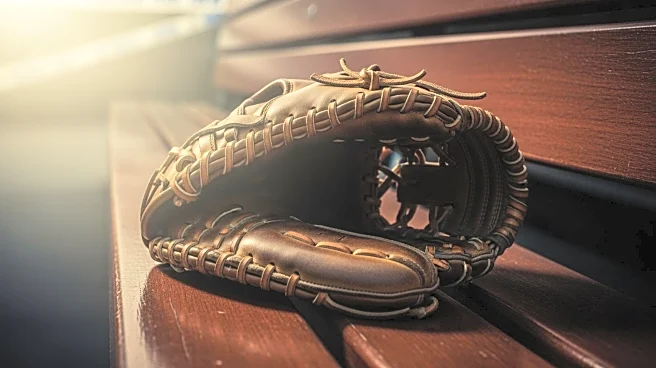What's Happening?
Martin Maldonado, a seasoned catcher known for his defensive prowess, has announced his retirement from Major League Baseball. After a 15-year career, Maldonado played his final season with the San Diego
Padres, appearing in 64 games in 2025. Throughout his career, he played for several teams including the Milwaukee Brewers, Los Angeles Angels, Houston Astros, Kansas City Royals, Chicago Cubs, and Chicago White Sox. Maldonado, who won the American League Gold Glove Award in 2017, expressed his gratitude and love for the game in a heartfelt Instagram post, stating it was time to 'hang them up' and retire. He leaves behind a legacy of strong defensive skills, despite a modest batting average of .203, with 119 home runs and 384 RBIs over 1,230 career games.
Why It's Important?
Maldonado's retirement marks the end of an era for a player who was highly regarded for his defensive capabilities behind the plate. His departure may impact the San Diego Padres, who relied on his experience and leadership during the 2025 season. The MLB will lose a player who contributed significantly to the teams he played for, particularly the Houston Astros, with whom he won a World Series ring in 2022. Maldonado's career highlights the importance of defensive skills in baseball, often overshadowed by offensive statistics. His retirement may prompt teams to reassess the value of defensive specialists in their rosters.
What's Next?
With Maldonado's retirement, the San Diego Padres will need to fill the void left by his departure, potentially looking for a catcher who can provide similar defensive strength. Other teams may also consider the implications of losing a player with Maldonado's experience and leadership qualities. The MLB community will likely reflect on his contributions and the role of defensive players in the league. As teams prepare for the next season, the focus may shift to finding players who can balance both offensive and defensive skills effectively.
Beyond the Headlines
Maldonado's retirement underscores the broader conversation about the longevity and career transitions of professional athletes. It highlights the emotional and personal aspects of retiring from a sport that has been a significant part of one's life. His decision to retire may inspire discussions about the support systems available for athletes transitioning out of professional sports and the importance of planning for life after retirement.








